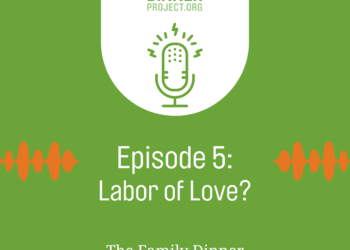[ad_1]
Whereas sugar substitutes have been round for greater than a century, they didn’t actually turn out to be mainstream right here in america till across the mid-70s. According to Carolyn De La Pena, professor of American Research at UC Davis and writer of Empty Pleasures: The Story of Synthetic Sweeteners from Saccharin to Splenda, between 1975 and 1984, People elevated their consumption of synthetic sweeteners by 150 %. This timeline is smart once you take into consideration that the late seventies coincided with the beginning of our crazed eating regimen tradition and the revolving door of fad diets.
One such eating regimen that doesn’t appear to be going wherever, nevertheless, is the Keto diet. Nonetheless vastly common amongst People making an attempt to shed a number of kilos, Keto focuses closely on restricted or no carbohydrates. As a result of sugar comprises carbohydrates, followers of Keto have turned to synthetic sweeteners to fulfill these late-night cravings – sweeteners that, most of the time, include erythritol. Erythritol particularly has turn out to be vastly common as a result of it’s a lot better for baking than different sugar substitutes, has much less of a man-made taste, and can maintain the eater in Ketosis, which is essential for shedding weight on the Keto diet.
A brand new study has made waves just lately as a result of its findings point out there’s a hyperlink between erythritol and better charges of coronary heart assault and stroke (although the research did observe that solely an affiliation was discovered — not causation. So must you be anxious?
We requested Dan LeMoine, RD, the award-winning writer of Worry No Meals and the Scientific Director at Phoenix-based Re:vitalize Nutrition, what he needed to say about erythritol, together with its advantages and potential well being dangers. “Synthetic sweeteners are nonetheless sweeteners. Whereas many are non-nutritive or zero-calorie, we are likely to view them equally as we do common sweeteners or sugars — moderation is essential. Whereas many have superb implications on weight reduction – being low to no-calorie choices and having little affect on blood sugar, some have their draw back,” he says.

Whereas a few of that sugar substitution has been good for waistlines and well being points that come from weight problems, it appears to be inflicting increasingly more concern on the subject of different potential well being points. “For instance,” says LeMoine, “some research signifies the favored sweeteners stevia could have damaging results on the intestine microbiome. And the recent study exhibiting correlation between the sugar alcohol, erythritol, and heart attack and stroke.”
In fact, as with most issues, moderation is the important thing to a wholesome life-style. “Should you’re an ‘each from time to time’ enjoyer of erythritol and haven’t any underlying situations, then you definitely’re probably okay to proceed utilizing erythritol to satiate your candy tooth every so often,” LeMoine says. “If however, you could have a historical past of blood clots or stroke, and are utilizing erythritol every day, it may not be a nasty thought to search out an alternate because the research pointed to a rise in potential clotting danger amongst those that had excessive quantities of erythritol of their blood.”
In fact, cravings are sometimes our physique’s approach of telling us that we’re missing a selected mineral or micronutrient. Once we discover ourselves wanting sugar, that may imply our physique wants micronutrients like chromium, tryptophan, or phosphorus. In fact, these could be present in pure substances like fatty fish, eggs, candy potatoes, broccoli, or grapes. If we’re commonly consuming a well-balanced, nutrient-rich eating regimen, frequent sugar cravings ought to subside.
On the finish of the day, although, we’re human, and the will for luscious, scrumptious, sugary sweet treats is actual — particularly when sticking to a stricter eating regimen like Keto. LeMoine properly advises, “In the case of sweeteners of any form (synthetic or not), our celebration line tends to be: ‘Deal with treats like treats.’” That means, in fact, that it’s completely high-quality to indulge each from time to time, however for probably the most half, kick these sugar cravings with a visit to the fruit bowl, not the sweet, or, on this case, the “sugar-free” aisle.
Editors’ Suggestions
[ad_2]
Source_link





